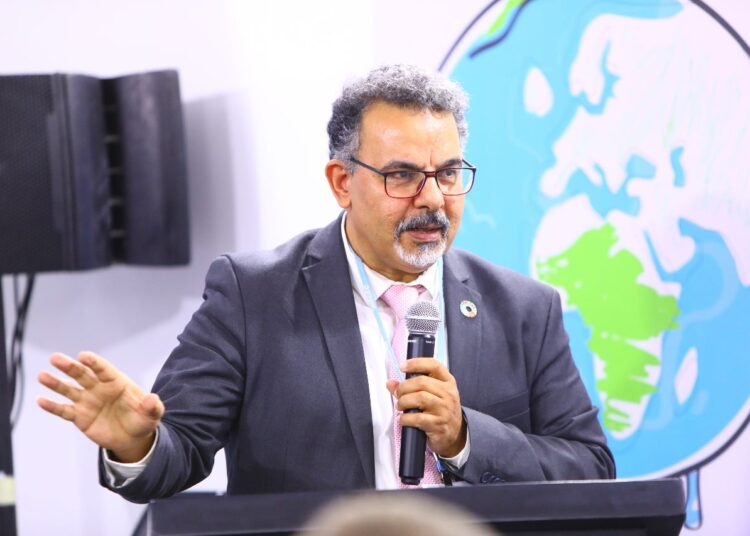Egyptian Minister of Social Solidarity Nevine el-Qabbag presented Egypt’s experiment in empowering the rural poor during an event on the sidelines of COP27.
The presentation covered means of realising women’s potential in rural communities.
Dr Atef el-Shabrawi, an advisor in economic empowerment at the event, said: “The poor are the most harmed by climate change. They spend between 60 and 80 per cent of their income on food, leaving little left over for clothing, education and medicines.”
“Moreover, anti-poverty programmes should focus on giving women financial support and enable them to produce what they can eat and fulfil their own needs. This should be the nexus of rural economic development,” el-Shabrawi said.

“Egyptian civilisation was built on an agricultural revolution. Egyptians were the first to practise agriculture nationwide and develop irrigation. Their agricultural practices allowed them to cultivate food crops, and all of Egyptian society became self-sufficient,” el-Shabrawi added.
“However, today farmers are abandoning their land and rural communities and they depend more on food they can buy than on what they could produce.
“Egypt now has a social protection network for 5 million families – almost 80 per cent of the rural population – and this requires innovative means of economic empowerment.
“Those most in need in rural communities prefer animal wealth as a primary asset. Moreover, the Egyptian government has found it necessary to connect economic empowerment with food production. National programmes were therefore launched to help the poor produce their own food and fulfill their own needs.”
The advisor referred to the Forsa (Opportunity) Programme, affiliated to the Social Solidarity Ministry, which provides 50,000 work jobs at a cost of $50 million. “Around 35,000 projects are being carried out in co-operation with 18 civil associations in eight Egyptian governorates,” el-Shabrawi said, pointing out the presidential initiative to supply small-scale farmers with highly-productive breeds of sheep. This initiative is being implemented in co-ordination with the ministries of agriculture and religious endowments, and the Agricultural Development Bank. A budget of LE155 million was allocated for the implementation of this project.
El-Shabrawi said economic empowerment for the rural poor has become a government top priority to combat climate change.
The Forsa Programme is a successful model for linking the economic activities of poor families with sustainable food production, he added.






Discussion about this post